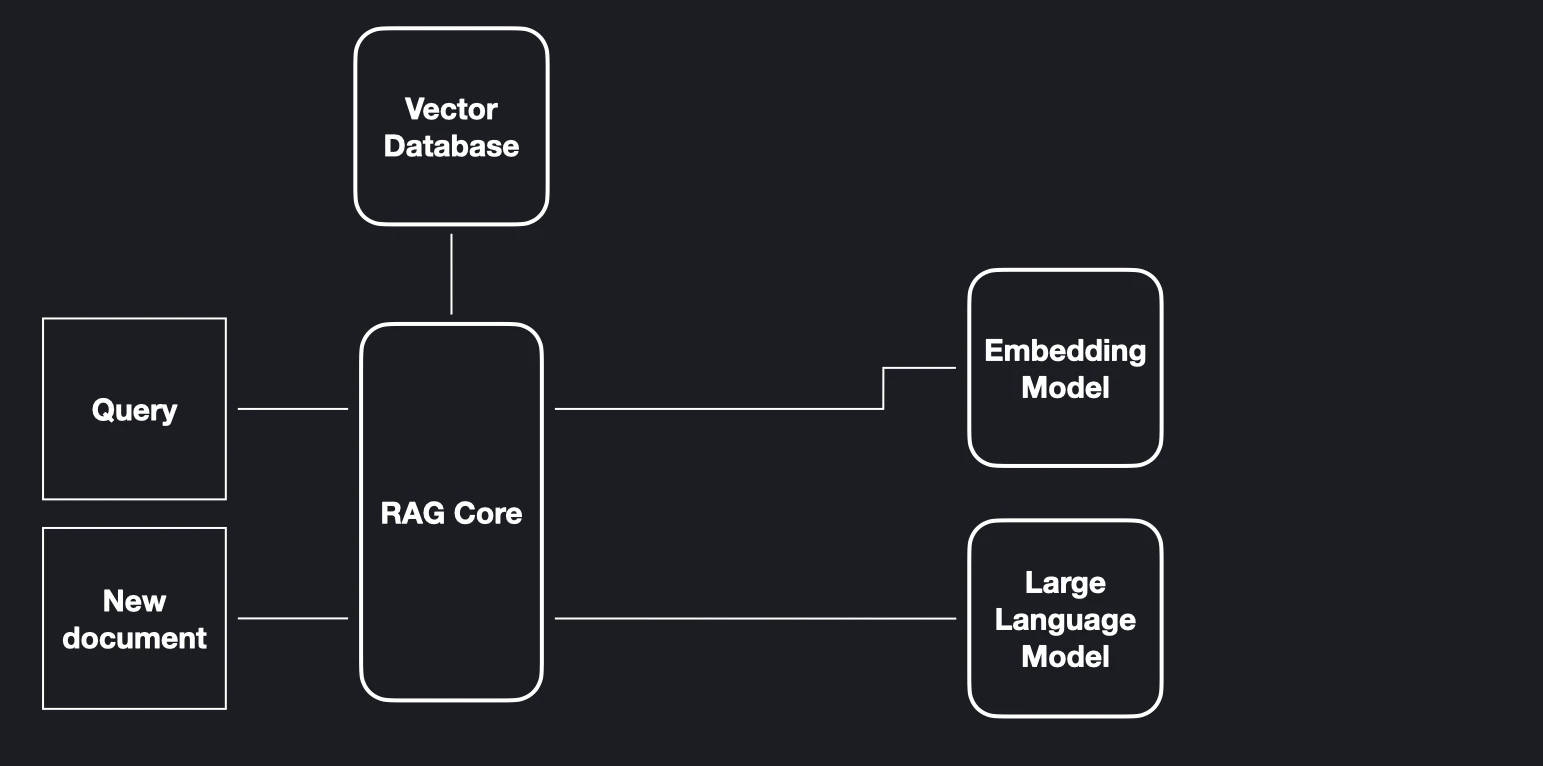RAGCore: Simplify Retrieval-Augmented Generation (RAG) Apps

Developed RAGCore, an open-source Python library that simplifies building Retrieval-Augmented Generation (RAG) applications, allowing developers to create robust RAG systems with just a config file and four core methods.
The Challenge
Retrieval-Augmented Generation (RAG) is crucial for ensuring language models provide factually accurate, up-to-date, and controllable responses. However, assembling a RAG application typically involves integrating multiple distinct components, from vector databases and embedding models to large language models themselves. While frameworks exist, they often require significant boilerplate code, creating complexity and slowing down rapid prototyping and deployment, especially for common use cases.
My Solution
I developed RAGCore, an open-source Python library designed to significantly streamline the development of RAG applications. RAGCore abstracts away the intricate component integration, allowing developers to build robust RAG systems with unprecedented simplicity. The core of my solution enables users to configure an entire RAG pipeline through a single YAML configuration file and interact with it via just four intuitive methods: add, remove, list, and query.
To ensure flexibility, RAGCore supports common integrations for various LLM providers, embedding models, and vector databases. The project also provides a clear, conceptual overview of how RAG components (parametric and non-parametric memory, embedding models, chunking strategies) work together, complete with a practical, step-by-step example for rapid setup and multi-user support.
The Outcome
Accelerated Development Cycles: Significantly reduced the time and complexity required to build and deploy functional RAG applications, empowering developers to rapidly iterate on LLM-powered solutions.
Democratized RAG Implementation: Lowered the barrier to entry for incorporating factual accuracy and dynamic knowledge into language model applications, making advanced NLP techniques more accessible.
Robust & Extensible Foundation: Provided a clean, open-source codebase that serves as a reliable and adaptable foundation for a wide range of RAG use cases.
Demonstrated API Design & NLP Expertise: Showcased a deep understanding of LLM architectures, practical NLP applications, and the ability to design elegant, developer-friendly APIs.